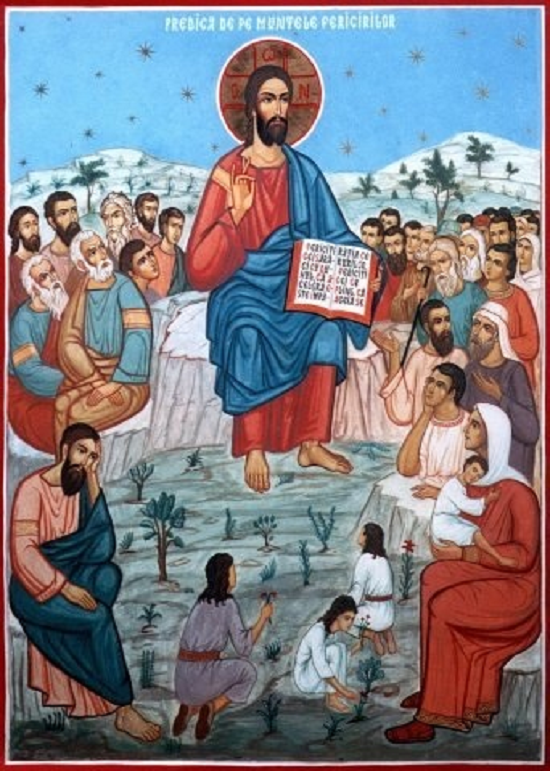Magical Thinking
Seventh Sunday Scripture Readings

There’s no magical thinking in Christianity, though some are convinced otherwise. The basis of magic, after all, is the conviction that, if I will something to happen and perform some action along with some prescribed words, that alone will bring about what I desire. From the beginning, Christianity has been conflated with magic. Simon the Magician tried to buy from the Apostles the ability to confer the gifts of the Holy Spirit. [Acts 8:9-24] Things got worse when the Church Fathers tried to explain the Sacraments using the Aristotelian concepts of “matter” and “form.” “Matter” described the sacramental action, while “form” referred to the necessary words that accompanied it. This led to the belief that “magic words” would change ordinary things and actions into something extraordinary. Thus, we have the “magic words,” hocus pocus, which are mispronunciations of the Latin words of consecration, “Hoc est enim corpus meum,” “For this is my body.”
Magical thinking seems intimately connected to the common interpretation of “salvation.” How often have we heard, “You can be saved, only if you do X, Y, and Z.” Okay… but I might ask, saved from what? “Why,” they tell us, “saved from going to hell, of course.” This fear of going to hell was the basis for a great deal of the religious thought and practices of the Middle Ages. But didn’t the Renaissance and the Age of Enlightenment do away with much of that? I’m afraid not. We might have changed the approach somewhat, but the magical thinking behind it remains. Consider these statements. If you don’t accept Jesus Christ as your personal savior, you won’t be saved. Or, you have to believe XYZ, or you won’t be saved. Or even, unless you’re baptized in XYZ church, you won’t be saved. In other words, you won’t go to heaven. It’s all magical thinking.
Ignore what you’ve been taught and heard about heaven. The term heaven, הַשַָּׁמַיִם (hashshamaim) in Hebrew or ὁ ὀυρανος (ho ouranos) in Greek, means, quite literally, the sky. Figuratively, it’s used to refer to God’s abode, which, after all, is everywhere. When Jesus spoke of heaven, we’ve seen often enough that he uses the term “the kingdom of heaven” as synonymous with “the kingdom of God,” both meaning, the reign of God, or where the will of God is done. Heaven, for Jesus, is not a place but a condition where human wills are perfectly aligned with the will of God. In that alignment, we humans find fulfilling life. That is salvation. Hell, then, is opposition to the will of God, self-will run riot, and a life of fatal futility. Hell is the ultimate isolation.
Look at today’s gospel reading. There’s nothing theoretical there. There’s no magical thinking. You want salvation from a life of futility? There’s the game plan. You want heaven? You’ve got to create it. Love your enemies. Do good to those who hate you. Bless those who curse you. Pray for those who mistreat you. Feed the hungry. Give drink to the thirsty. Clothe the naked. Shelter the homeless. Give comfort to the sick and imprisoned. Bury the dead.
What about doctrine? Don’t we need to believe that Jesus is the Son of God, the second Person of the Blessed Trinity, true God and true man? What about the tenets of our creed and our Church? How we describe God and Jesus can border on magical thinking and is of secondary importance. At the end of his life, even Thomas Aquinas, probably the greatest theologian of all time, said of his work, “It’s all straw. Burn it.” Creeds, doctrine, and theology can’t determine faith. Faith comes down to one thing: trust in the God you don’t understand.
Finally, what about the Sacraments? Aren’t they magical thinking, too? Isn’t our presence here at the Eucharist literally hocus pocus? No. The Sacraments aren’t magic. They’re celebrations by the Christian community, the Church, of lived spiritual realities. For example, Baptism isn’t magic. It’s the celebration in and by the Church of an individual’s willing identification with the death and resurrection of Christ, allowing that death and resurrection to take root in them, whether by personal initiative or in virtue of a child’s family’s commitment to live that death and resurrection as they nurture their child in their faith. It’s the seal of the Christian community on a commitment to live as we just heard in today’s gospel.
And the Eucharist? Where does that come in? The Eucharist is the Church’s celebration of our commitment to live our practical faith in community and for the benefit of one another. As Christ nourished his disciples in a supreme act of love with his own body and blood, so do we nourish one another with our love in action. In that nourishment, we become one body, one spirit. We, the community of believers, become the Body and Blood of Christ in the world today. We become Eucharist. As Christ offered himself—and continues to offer himself—to the world in and through our offering of ourselves, we say, “This is my body which will be given up for you. This is the cup of my blood, the blood of the new and everlasting covenant.” There is nothing more practical. There is no magical thinking here.
Get articles from H. Les Brown delivered to your email inbox
